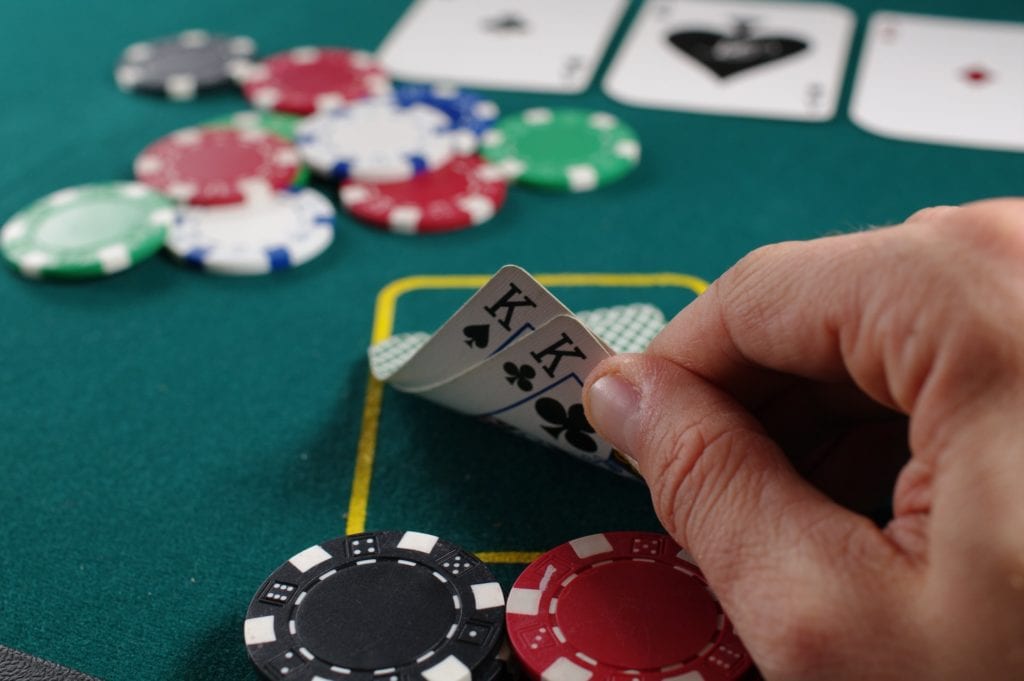Poker is a gambling game that originated more than five centuries ago. Some historians assume that the origin of poker can be traced back to China (10th century), France (16th century) and America (19th century). One of the earliest forms of poker was called “poque” and was played in New Orleans.
Today, there are many poker variations and each option differs in the size of the bets and combinations. According to statistics, across the U.S, U.K., and Australia, 37 percent of PC and mobile players play social casino games, such as slots, poker, bingo, blackjack, roulette, and baccarat. Poker ranks third in popularity, after slots and blackjack.
Poker is a game of logic combined with luck, but it is sometimes difficult for beginners to master this game right away. They don’t adhere to a consistent strategy, don’t want to evaluate their mistakes, don’t understand that frequent small losses will eventually turn into costly losses.
Below we dive into the top mistakes that beginner poker players make and give tips on how to avoid them. Besides, if you want to get better at poker and practice online, learn more about online poker at Kazinopasaule.lv
- Being too emotional and playing scared
Bad mood, obsessive thoughts, a bad beat at the table can evoke negative emotions that affect decision-making. It is believed that people take wrong decisions under the influence of anger and embarrassment. As a result, novice players chase losses, make desperate moves in a rush, and allow their ego to take over.
On top of that, many new gamblers fear to make a mistake or lose, that is why they fold until they know they have a royal flush – the strongest poker hand. Besides, because of a lack of experience, they believe that all players who bet aggressively have a monster hand, but in most cases, they’re just bluffing.
Tips:
If you feel that emotions overwhelm you, get them under control, take a step back, and reset your mind. It is better to stop playing before making irrational and unprofitable decisions. Also, practice as much as possible to gain the necessary experience, get rid of fear, and start following your gut.
- Playing outside a bank range
Excitement can drag on a beginner, and he will not keep track of his bankroll. This is an unfavorable situation that can result in burning money and going broke.
Tips:
Always play within your limits and manage your bankroll. Learn how to determine long losing streaks and avoid them. Don’t give in to your emotions and always keep a cool head.
- Playing too many hands or getting committed to one hand
These situations are two extremes that should be avoided. Beginner poker players encounter these problems because they are impatient or think that giving up is embarrassing, but in poker, sometimes folding is the only way to go.
Some players play every hand regardless of the cards they have because they don’t understand what a good starting hand selection is. Eventually, they hit the flop a small percentage. They don’t get the idea that playing too many hands means that you won’t earn much but lose much.
The opposite problem is getting attached to one hand. For instance, players may play a pocket pair because they don’t want to look weak in front of other players or get bluffed out.
Tips:
Learn how to differentiate between the hands and be ready to fold when necessary. The more you play, the less comfortable you get with marginal strength hands.
- Bluffing too much
Though poker is a competitive game that requires bluffing skills, great logical thinking and good intuition, some beginner poker players mistakenly assume that the main purpose of poker is to bluff successfully. As a result, they bluff all the time and become predictable.
Tips:
Learn to analyze the behavior of your opponents and bluff at the most appropriate time – when you are sure that your opponents are likely to fold. Decide on an optimal percentage of bluffing so that other players believe you.
- Illogical bet sizing
Many beginners do not know all aspects of betting, so they often make either too obvious or too irrational bets, which ultimately leads to detriments. For instance, if a player wants to protect his hand, he raises the bet. A novice player has a good hand with $20 in the pot. One player limps, the other raises the bet by $15, and the novice player goes all-in and raises the bet to $100. Everyone folds and the newbie takes the pot, but he gets the minimum value.
Tips:
The main thing in bet sizing is not to give your opponents an obvious picture of the hand you have so that they can make mistakes, and you will make money. Calculate your bets in detail. Get the most out of your opponents’ bets – raise your bet gradually by a small amount and do not go all-in after the first round of betting, since the probability of getting a high payoff is minimal.
Conclusion
Making mistakes for a beginner is an opportunity to learn and hone his craft. Do not be discouraged if you have made one or several of the listed mistakes. All players make mistakes with one difference – experienced players make fewer mistakes. We hope that with the help of these tips, you can identify your weak points, work on your mistakes, and improve your skills.



